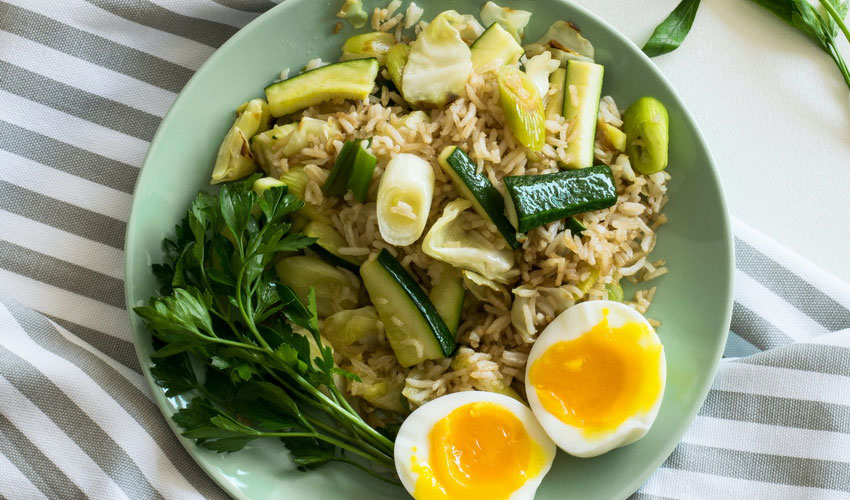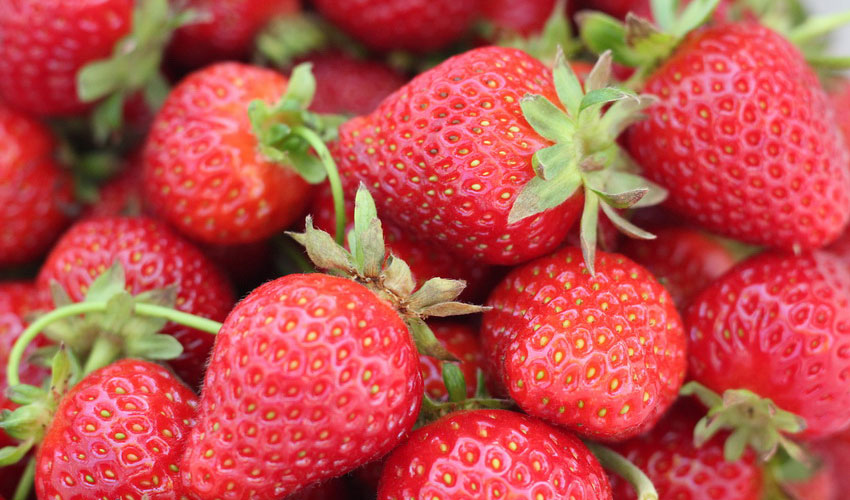Heartburn Prevention - What to Do & What to Avoid
Heartburn, that fiery issue that brings forth the wrath of stomach acid, is a sneaky little demon that likes to vary its triggers from person to person. It's like a mischievous mastermind, playing a game of hide-and-seek with our digestive systems. While we all experience the fiery sensation in our chests, the culprits behind the scenes can be as different as night and day. According to Julia Zumpano, RD, a dietitian with the Cleveland Clinic Digestive Disease Institute, heartburn is as unique as a fingerprint. It's a personalised experience, like choosing a favourite pair of shoes or a guilty pleasure TV show. Some folks may experience it immediately after chowing down, while others have a delayed reaction like a thunderstorm rolling in a few hours after a picnic.
But what's causing this whole heartburn hullabaloo, you ask? Well, it all boils down to a loosey-goosey muscle known as the sphincter. This rebellious renegade is responsible for keeping the stomach acid where it belongs, in the stomach. But when this lazy muscle decides to take a break, it allows the stomach acid to go for a joyride up the oesophagus, leaving us with a burning sensation fit for the depths of Mount Doom. Dr. Christopher Marshall, the gastroenterology guru from UMass Memorial Health, explains that our devilish diet and lifestyle choices can push that sphincter into a state of relaxation more often than necessary. It's like throwing a party for that misbehaving muscle, giving it the green light to pull its shenanigans whenever it wants.

Now, let's talk about how to keep this heartburn monster at bay. While we must remember that everyone's tolerance for acid antics differs, there are some general guidelines we can follow to avoid turning our chests into fiery infernos. So, here's the deal: steer clear of trigger foods and activities that can send that sphincter into an unwanted vacation. Keep your distance from greasy, spicy, and acidic delights that could ignite the flames within. And for those enjoying their meals at a slow and leisurely pace, be prepared for some acid-spewing surprises a couple of hours later. The battle against heartburn may be an individual fight, but with a strategic approach and a few dietary detours, we can keep this acid reflux rascal in check. Stay vigilant, stay informed and remember that a happy stomach leads to a happy heart (and a heart that's free from the ungodly sensation of heartburn).
Don’t Consume Fatty Foodies
Dr. Marshall, the connoisseur of all things heartburn-related, reveals a golden nugget of wisdom that could save your precious oesophagus from turning into a fiery pit of lava: steer clear of fatty meals. That means waving goodbye to your deep-fried delights and bidding adieu to those succulent, fatty meats. Why, you ask? Well, it turns out that fat is like the mischievous little imp who loosens the sphincter and allows acid to rampage through your digestive system. Who knew? According to the good doctor, adopting a low-fat, heart-healthy diet will not only bestow blessings upon your waistline but also shield you from the wrath of heartburn and reflux. So, it seems that by evicting fat from your life, you're not only avoiding the trigger itself but also preventing the domino effect of weight gain that sets off this fiery inferno./p>
No Resting Right After a Feast
Listen up! If you're the kind of person who loves to chow down on a hearty meal and then immediately flop onto the couch, brace yourself for some heartburn! According to the wise words of Marshall, our stomach digestion expert, laying down right after you eat is like waving a white flag to heartburn. Sure, sitting down is totally fine, but once you go horizontal, watch out! Gravity takes a coffee break, leaving stomach acid free to splash into your oesophagus. And that's not a pleasant sensation to experience. So, it's time to make a note in your culinary rulebook - at least 2 to 3 hours of chill time between your last meal and bedtime is absolute gold. Marshall, being the research ninja that she is, stumbled upon a fascinating study conducted on 2,000 people in Pakistan. And you won't believe what they discovered! Elevating your head and chest during sleep turned out to be the holy grail of reflux relief. That's right, tucking yourself in at a slight angle can work wonders in keeping that vicious acid at bay. So there you have it. If you want to savour your meals without the fiery torment of heartburn, remember the golden rule: resist the urge to plop down like a pancake after eating, give yourself a decent time gap before bedtime, and perhaps treat yourself to an elevated snooze. After all, who said fighting heartburn couldn't have a dash of style and wit?

Don’t Consume Acidic Food & Beverages
Acidic foods and drinks have a knack for irritating the delicate lining of our oesophagus, leaving it feeling miffed and inflamed. But alas, the specific acidic culprits that set off heartburn may vary from one person to another, adding a twist of unpredictability to this fiery situation. Enter coffee, the notorious troublemaker often seen loitering on the "avoid if you have heartburn" list. However, the research on this caffeinated troublemaker is a bit of a mixed brew. A meta-analysis, that fancy term for a collective study, published in the wondrous journal Nutrients, gathered the results of 30 studies and unearthed some intriguing findings. One petite study of 31 brave souls discovered that coffee could loosen the grip of the lower oesophageal sphincter, leading to an increase in reflux. Yet, it should be noted that this phenomenon varied depending on the type of coffee consumed, for java comes in many delightful flavours. However, despite this caffeinated controversy, this comprehensive analysis failed to uncover any ironclad evidence linking coffee to a higher frequency of GERD, the unwelcome sibling of heartburn. Now, let’s move on to the sour sensations of citrus. Oh, how these tangy delights can sometimes trigger heartburn, but alas, it is a highly individualised experience. Expert, Zumpano, advises us to keep a keen eye on what seems to send our own personal heartburn into a frenzied tango. So, take heed and be attuned to your body's unique cues – for your heartburn might just have a mischievous flair all its own.
Don’t Drink Alcoholic Beverages & Don’t Smoke Tobacco
Alcohol and cigarettes, including e-cigarettes, are both known to relax the oesophageal sphincter, letting stomach acid through, says Marshall. A meta-analysis published in the journal Alcohol and Alcoholism included 28 studies on alcohol and acid reflux. The researchers concluded that while drinking any amount of alcohol did have the potential to increase reflux, drinking more at a time, and more frequently, was strongly associated with worse symptoms of gastro esophageal reflux disease (GERD), a symptom of which is chronic heartburn.
Don’t Eat Spicy Foods
Spice up your culinary game, they said. But little did we know that these fiery flavour bombs would ignite a vicious inferno in our chests - the dreaded heartburn. In a brave attempt to save our taste buds from eternal blandness, a survey study ventured into the treacherous realm of digestive discomfort. They enlisted 100 brave souls with GERD, a condition that turns their stomachs into fiery cauldrons. And guess what they found? A whopping 85 of these valiant warriors could identify the enemy responsible for their torment - trigger foods! Now, brace yourselves for the most malevolent of them all - the spicy villains. These audacious troublemakers ignited heartburn in a staggering 62% of the study participants. Oh, the pain and agony! Fortunately there is a glimmer of hope in this flavourful chaos. Enter Zumpano, the wise sage of digestion. He advises us to tread lightly when it comes to the spiciness. Instead, he suggests adding a dash of pizzazz to your meals with less irritating herbs like oregano or turmeric. So, let's bid adieu to the blistering burn and bring forth the herbaceous heroes of flavour!

Don’t Eat Too Much
Eating too much during a meal has also been identified as a common trigger for heartburn. A meta-analysis of 6 studies that included more than 34,000 people, published in the journal Therapeutics and Clinical Risk Management, found that snacking at night and overeating were both associated with higher risk of heartburn. If overeating is a trigger, Zumpano suggests people stop eating before they feel full to keep from eating too much and causing a bout of heartburn. “Practice eating more frequent meals high in protein and fiber. Use smaller plates and bowls, and eat with your non-dominant hand to slow you down,” she adds.
Discover the Power of Uncovering Your Triggers
Zumpano, the reputed food expert, advises us to keep a sassy food journal to uncover our individual triggers. "Jot down every time that fiery heartburn strikes, note its intensity, and remember what tasty treat you just devoured," Zumpano suggests. "By documenting these devilish moments, you can uncover the culprit in that sneaky meal." But hold onto your stomachs because peppermint, known to ignite the flames of heartburn, might just save the day for other digestive disorders like IBS, according to the one and only Marshall. In a mind-blowing study published in Digestive Diseases and Sciences, a whopping 85 individuals with GERD managed to tame heartburn by an impressive 50% just by discovering their food foes and steering clear of them. Get ready for a spicy revelation, my friends, as the most common trigger culprits reported were none other than spicy foods, chocolate, pizza, tomato, and the delightfully devilish fried foods. "The moral of this gastro tale is to sharpen your detective skills and identify those pesky triggers that torment you. Only then can you find the ultimate solace," Zumpano wisely exclaims.
“One of the fastest ways to improve your health is to eat slowly.” - Mokokoma Mokhonoana






















